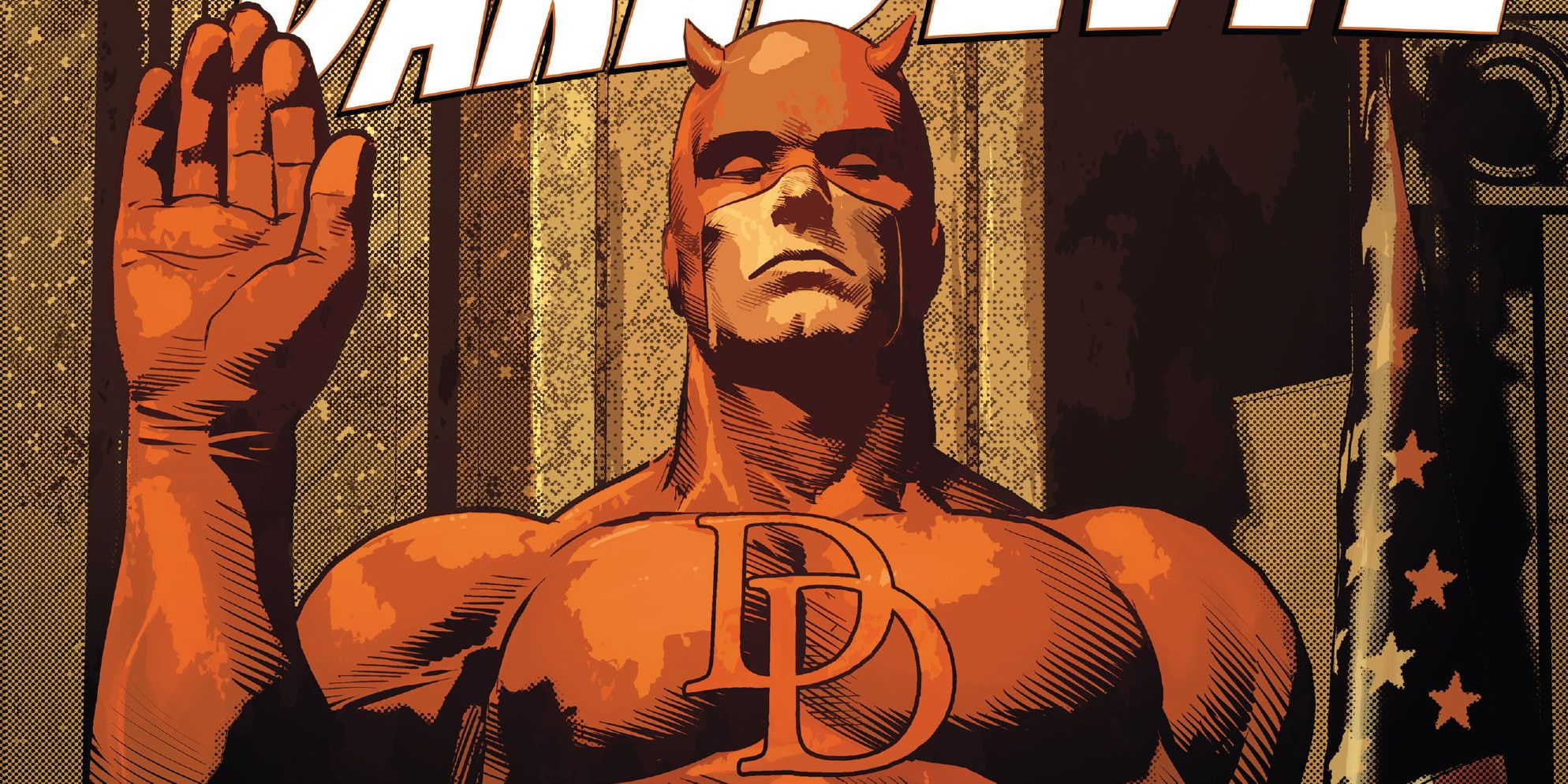Most superheroes have the same operating procedure when it comes to fighting criminals: beat them up, restrain them, deliver them to the police to be charged and tried. But when you apply the real-world legal system, that process starts to look less like street justice and more like an unenforceable private arrest. In Marvel Comics, one of these issues has captured enough attention to become the basis of an entire storyline: can masked heroes testify at a trial without revealing their secret identities? Daredevil wanted to know the answer... and bet his entire career on it.
When Spider-Man leaves someone tied up with a line of webbing, the only witness to whatever offense that person may have committed might be Spider-Man himself, especially in the case of supervillains who tend to execute their plans in shadowy lairs. Why wouldn't the courts swear the web-slinger in? For starters, verifying that he is the Spider-Man they're looking for is difficult when there are a dozen spider-based men in existence, several of whom share Peter's DNA. After that, they would still run into the brick wall that is the Sixth Amendment, which guarantees the accused the right to know who their accusers are. Without the Sixth in place, fundamental pillars of the court system, like discovery, fall apart. How do you gather information on a material witness if you can't find out who they are?
But one hero has fought for that privilege: Daredevil, whose secret identity Matt Murdock is a criminal lawyer. In the Daredevil storyline "Supreme", written by Charles Soule with art by Goran Sudzuka and Alec Morgan, Murdock uses the case of a minor-league supervillain to argue that superheroes should be allowed to act as witnesses anonymously in court. He proposes that the past allowances of confidential testimonies -- witnesses who were known to the court, but whose names were not released for reasons of government classification or safety -- should be expanded to include superheroes with secret identities. He also claims that Daredevil is not actually an anonymous witness, because Daredevil the hero is a public figure known to most of New York with a well-established reputation.
Matt also includes numerous other cases with more advanced legal foreknowledge, but readers see only glimpses, in the way that readers only get the barest understanding of how a mad scientist’s shrink ray would operate; series writer Soule is a lawyer, but cannot produce a complete and effective legal argument for such a massive shift in constitutional doctrine. In the end, Murdock took the case to the federal Supreme Court and won, establishing that superheroes can take the stand in the Marvel Universe.
Now that ruling may save the lives of Murdock’s loved ones. In the newest chapter of Daredevil, issue 21, the costumed superhero has been arrested for murder after turning himself in. His best friend Foggy Nelson told him directly: if he has to unmask before the court as part of due process, his loved ones will be in danger... including Foggy himself. So Daredevil uses Matt Murdock's own ruling in an argument to allow superheroes to stand trial under a mask, not just serve as a witness. The New York District Attorney approves but insists Daredevil unmask just for him, off the record.
The discovery that Daredevil has been practicing as a lawyer while illegally obtaining evidence, and beating up people involved in his own cases, sends the DA reeling as an entire career's worth of cases that should have been thrown out fall on his head. Maybe this 'lawyer superhero' thing has bigger problems.


